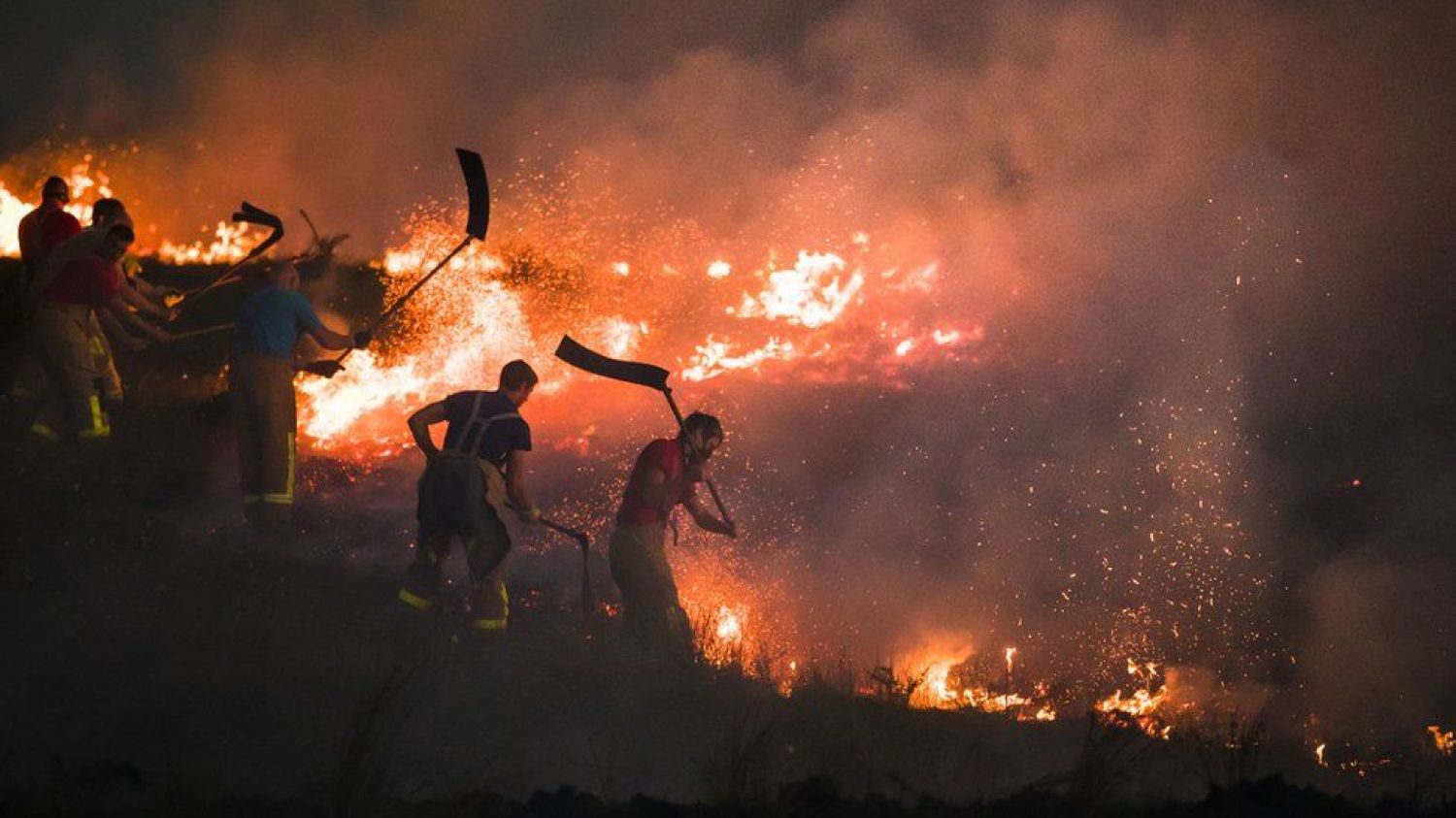
Fire blaze at Winter Hill near Bolton may take decades to restore
Feb, 15 2021
The scenes in this image are taken from the 2018 fire that scorched the land of Winter Hill near Bolton.
Fire-fighters worked tirelessly to distinguish the flames that burned for 42 days. In the wake of it’s devastation The Woodland Trust believe it could take decades to restore the peatland.
The charity hopes the Moor Carbon project, which has received an extra £652,000 from the government could reduce the recovery time.
In 2019 a glimmer of hope emerged that showed an appearance of cotton grass yet this was soon shadowed by the discovery of blackened, bare and carbon rich peat damaged by the blaze including the Winter Hill transmitter.
Restoration will include the planting of sphagnum moss and boosting the natural re-growth of other moorland plants.
The Woodland Trust said drainage channels will be blocked to make the moors wet again, helping to stop carbon-rich peat being carried off the hills by rainwater.
Tracey Garrett, head of the trust's team at the site, explained what the Moor Carbon project would do,
"Here at Smithills we have a precious landscape in terms of the region's battle against climate change. A healthy, living, breathing peatland is one of the most effective habitats for soaking up harmful carbon."
Last year, the countryside charity CPRE warned that emissions from UK peatland could cancel out carbon reduction by forests. Sources say over three billion tonnes of carbon is stored in UK peatlands - equivalent to the carbon stored in all of the forests in the UK, Germany and France.
Researchers would agree that forestry and peat should be enhanced but further evidence reveals that the best value lies with improving peat.
Matt Scott-Campbell, from the Moors for the Future Partnership, helps us to learn more about The Moor Carbon project,
"Rather than being a natural carbon store, peatlands - when degraded and damaged - are a major source of carbon emissions both in the UK and globally. The Moor Carbon project focuses on prioritising the carbon capture potential of the Peak District and South Pennine moors, which are some of the most degraded uplands in Europe".
The organisation has been restoring blanket bogs in the area for nearly 20 years, saying they can do the following:-
- Reduce the risk of wildfire
- Improve water quality
- Provide natural flood management
The restoration work is expected to continue until March.
^Alex Ashworth CCG UK Blogger






